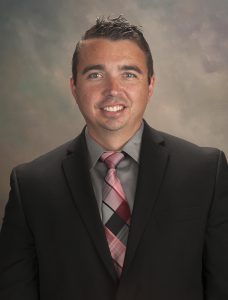You’ve probably heard about the mysterious polio-like condition causing muscle weakness and paralysis in more than 100 children across the United States this year. This week, we learned about a child diagnosed in Greenville, South Carolina. The condition is known as AFM. It’s not new, but there’s been an uptick in cases since 2014.
We asked Dr. Joshua Prince of Lexington Family Medicine, a Lexington Medical Center physician practice, to tell us more about the condition and what parents should know.

Q: What is AFM? A: AFM stands for acute flaccid myelitis. It’s a rare, but significant condition that affects the spinal cord. AFM is characterized by muscle weakness and abnormal reflexes. Symptoms include sudden weakness, slurred speech, droopy eyelids, inability to focus, and – in severe cases – trouble breathing.
Q: What’s causing it? A: There’s no identified cause at this time. Several theories are under consideration including enterovirus, environmental toxins and genetic factors.
Q: Some cases of AFM may start with common cold symptoms like a runny nose. That may scare parents whose children have the sniffles. What message do you have for those parents? A: This time of year, cold symptoms can be common. Do not be overly worried your child will develop AFM. It occurs in less than one in a million people. But if your child has a respiratory illness followed by neurological symptoms, have them evaluated immediately.

Q: How is it diagnosed? A: In addition to a healthy history and physical, doctors will conduct studies including an MRI of the spinal cord.
Q: Who gets it? A: Ninety percent of patients with AFM are under age 18. Some children may tell their parents they feel like their arm is broken. Keep in mind they may not know how to say they can’t move their muscle or lift their eyelids.
Q: What’s the prognosis for full recovery? A: The long-term prognosis is unknown at this time. Some patients have recovered completely in 60 days. Other patients show symptoms over a much longer period of time. To increase chances of full recovery, patients should be under the care of a neurologist and physical therapist.
For more information about AFM, visit CDC.gov.




